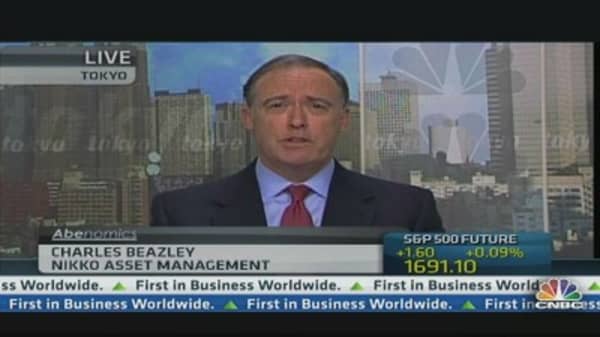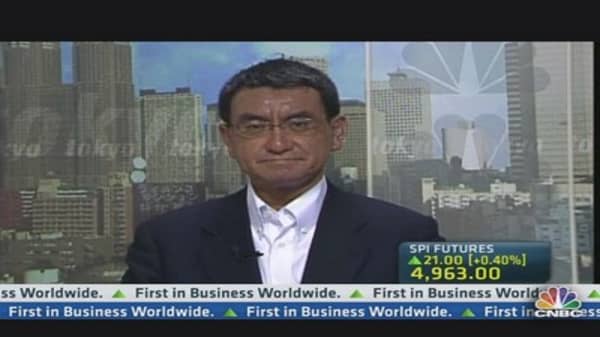Japanese Prime Minister Shinzo Abe's landslide election victory at the weekend was anything but a ringing endorsement from voters. The vast majority never voted for his coalition.
Abe's mandate is much smaller than his ruling bloc's win in the upper house poll suggests: only about one in four voters gave their support. Three-quarters of the electorate either did not vote at all or backed opposition parties.
The opposition, though, was badly fractured, with the Communist Party emerging as one unlikely beneficiary of those who felt unable to back Abe's Liberal Democratic Party-led coalition or the main opposition Democratic Party of Japan.
(Read More: What Sunday's Japan election means for Abenomics)
That means Abe -- who returned to power in December promising to revive the stagnant economy, bolster Japan's defense posture and revise its pacifist constitution -- may find the only potential brake on his agenda comes from his dovish coalition partner and rivals inside his own LDP.
"The opposition is currently totally ineffective," said Chuo University political science professor Steven Reed.





